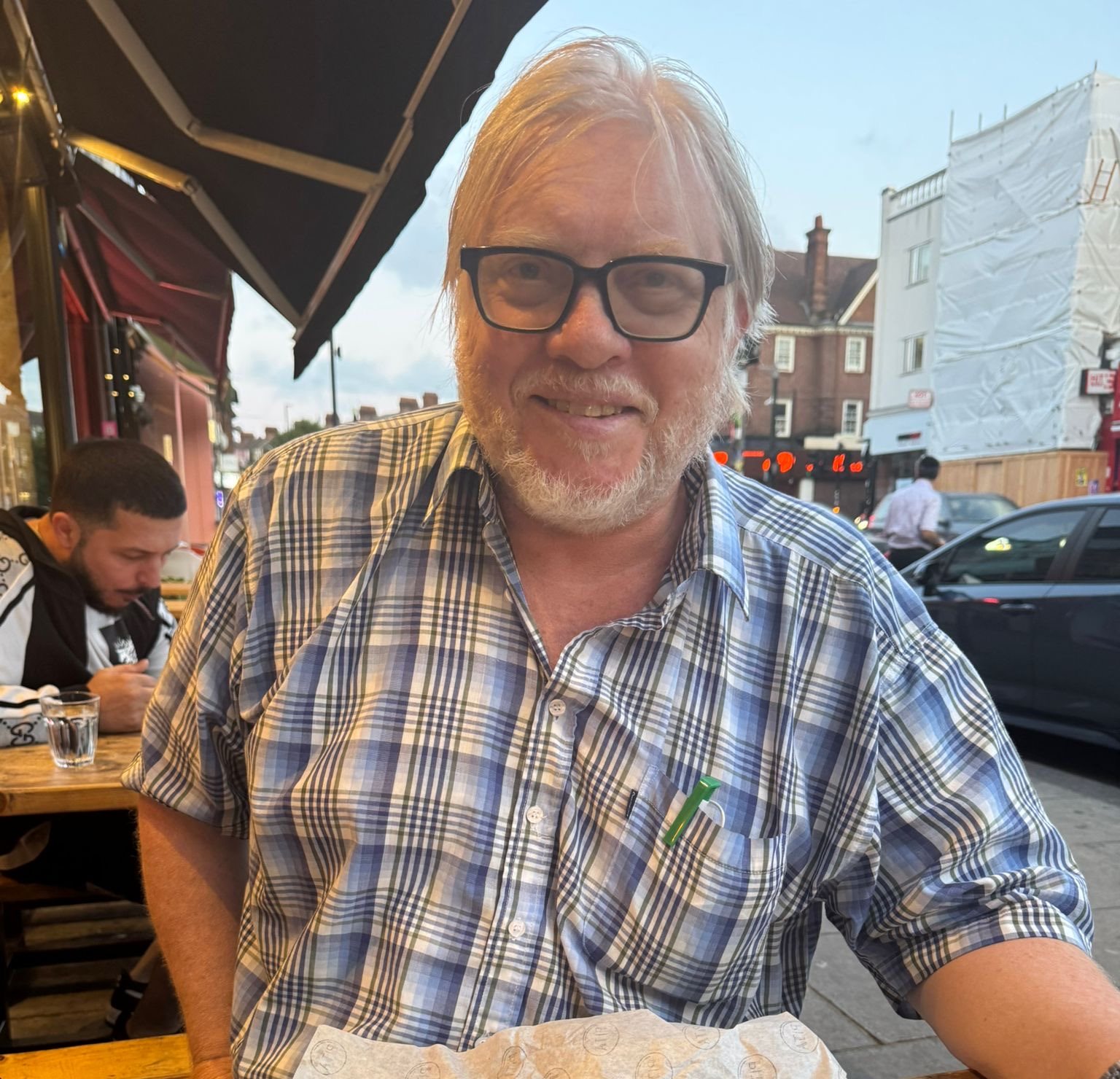 Tell us about your journey since graduating from LSE.
Tell us about your journey since graduating from LSE.
After graduating in summer 1978, I flew for the very first time, to JFK airport in New York City to begin a year at the Sociology Graduate School at the State University of New York at Stony Brook, Long Island, about 80 kilometres from Manhattan. Aside from studying at SUNY Stony Brook, I took several trips with new friends I made there, to Boston, Florida, Washington DC, the CIA HQ in Virginia, New Jersey, Ohio, Northern California, and a month long road trip with four friends (in a car we bought for just $300) across the continental US. It was quite an adventure!
When I returned to the UK, I did voluntary work at Amnesty International before embarking on a six year long PhD at the Open University's Energy Research Group (which later became the Energy and Environment Research Unit). My thesis was called "Nuclear Powers", and it examined how the UK changed from indigenous nuclear power plant design to an American design. It looked at this conundrum in the context of the Anglo-American special atomic relationship that began in the mid 1950s and runs through until the present (covering civil and military nuclear programmes). I used Steven Lukes's three dimensions of power as my interpretive heuristic.
I next co-authored a book on The International Politics of Nuclear Waste (MacMillan Press, 1990) with a fellow Open University academic, Andrew Blowers, and a US Department of Energy official, Barry Solomon.
Following this, I worked for a small environmental consultancy and later became a freelance environmental policy consultant, before retiring in 2021. Amongst my clients were several MPs and MEPs; the Nuclear Control Institute; the World Institute for Nuclear Security (WINS); and the World Information Service on Energy (WISE). My consultancy work took me to many countries for research and conferences including, Japan, Russia, USA and much of Europe.
I also co-founded and directed the European Proliferation Information Centre (EPIC) in London.
What advice would you give to students who are thinking of applying to LSE?
LSE is a great intellectual and social institution, with its cleverly created new campus, embedded into the physical fabric of the West End. You can enjoy the dynamic experience of a campus-style university with many modern facilities, including an outstanding research library and a truly international student and academic base. It's right in the middle of one of the world's most historic and multi-cultural cities, with the best theatre on the planet (several top theatres are within a few minutes walk from LSE). Because of its very central location and international reputation, LSE attracts amazing academics and speakers to lunchtime and evening events. I have enjoyed attending these for 50 years!
If you get an offer from LSE, certainly take it up. It is an amazing place to learn academically and about London.
How did studying in the Department of Sociology prepare you for your future?
For my interests in how societies work, sociology (and the sister disciplines of social anthropology and social psychology) taught me the tools for the job. My doctoral thesis was essentially an exercise in political sociological interpretation. Sociology teaches you the right questions to ask; and how to interpret the answers. It was a very useful grounding for the many consultancies I did with MPs, including with a shadow cabinet member (the late Michael Meacher, a Labour MP), the leader of the Green Party (the now retired Caroline Lucas MP).
What is your proudest achievement?
My proudest work-related achievement was to be appointed to the independent advisory panel for the Chief UK Nuclear Safety and Security Inspector at the UK Office for Nuclear Regulation (ONR) and to be appointed to the UK Energy Minister's Geological Disposal Implementation Board for radioactive waste.
I am also proud of the book I co-wrote (as mentioned above) and the several chapters in other books, as well as the expert reports I wrote, the papers I got published despite not having an academic base, the expert testimony I gave to committees at the UK and European Parliaments, and the expert media appearances I made on British, Japanese and Turkish television and radio.
What is your fondest memory from LSE?
Meeting long term friends, with whom we have planned a 50th anniversary celebration in October this year of our first meeting at LSE in 1975. I also met my partner at LSE, although she later defected to King's!
I played football for the School, and later joined the Economicals football club (the "Comics") for former LSE students, for whom I played until my mid 50s. I have made many lifelong friends through being a Comic.
What challenges have you had to overcome in your career?
I found it impossible to obtain an academic post, not for the want of trying, with many unsuccessful applications. This meant I could never make use of my research and presentational skills at a university. However, I did teach a course on Nuclear History at the old East London Polytechnic, taught one off courses at Reading University and Lancaster University, and wrote sections for several Open University courses, all as a consultant.
I would still like to be a associate at one of the several specialist research centres, as I feel I have a lot of experience to share.